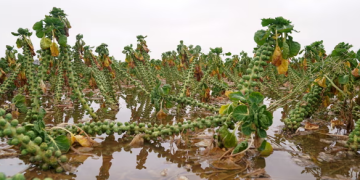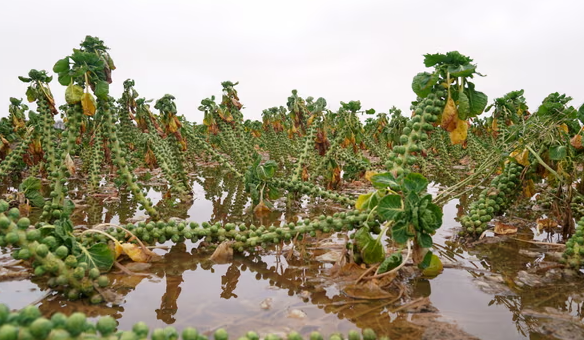Extreme weather conditions resulting from climate change are wreaking havoc on the UK’s agricultural landscape and beyond. From record rainfall hampering planting to drought affecting crop yields overseas, the consequences are dire. This article examines current challenges facing farmers, agronomists and agricultural engineers and examines their implications for food production, supply chains and prices.
As extreme weather events increase around the world, the UK is facing the immediate impacts of climate change in its agricultural sector. Record rainfall has left fields flooded, making them unsuitable for planting staple crops such as potatoes, wheat and vegetables. As a result, local farms are facing reduced yields and, in some cases, complete loss of crops. The consequences extend beyond the fields and also affect livestock. High lamb mortality rates and declining milk yields from dairy cows paint a bleak picture of the agricultural landscape.
Moreover, dependence on imports to compensate for local shortages is constrained by similar weather problems abroad. European countries such as France and Germany are struggling with adverse weather conditions, and drought in Morocco is threatening vital food exports. This convergence of weather-related crises paints a grim outlook for food security, with economists warning of looming inflation and rising supermarket prices.
The potato market is a prime example of the current crisis. Wholesale prices rose 60% year on year due to significant crop losses due to soil rot. The problem is compounded by shrinking acreage as farmers choose crops considered more financially secure in the face of unpredictable weather conditions. This shift in agricultural practices highlights the urgent need for adaptive measures to mitigate climate change.
In addition to potatoes, other staple crops such as carrots and parsnips are suffering from lower-than-usual yields, further exacerbating supply chain disruptions and rising prices. Industry insiders have raised concerns about the sustainability of current practices, citing insufficient income for farmers amid rising costs and environmental concerns.
While the immediate focus remains on overcoming the current crisis, the long-term consequences look severe. Scientists warn that without decisive action to reduce emissions and transform food systems, the sustainability of the current agricultural model is at risk. Urgent action is needed to strengthen resilience and adaptability in the face of escalating climate-related threats.































